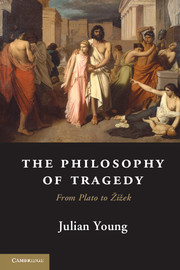Book contents
12 - Heidegger
Published online by Cambridge University Press: 05 June 2013
Summary
Martin Heidegger was born in 1889. Since that was also the year in which Nietzsche lapsed into madness, one might be inclined to view his birth as the passing of the torch of German philosophy. He was christened in the Catholic church in Messkirch in the Black Forest, the region of south-western Germany in which he spent almost his entire life. He was buried in the church of his christening in 1976. In 1933 Heidegger joined the Nazi Party, made numerous speeches in support of the Nazi regime and became for a short time rector of his university in Freiburg, supervising its Gleichschaltung, assimilation, into the Nazi state. After the war he was required to undergo a de-Nazification procedure (unlike Schmitt, he agreed to do so) and was forbidden to teach for four years. Although he described his involvement with Nazism as a great ‘error’ (quite possibly with the notion of tragic hamartia in mind), he never offered a public apology. Given this biography, it has proved virtually impossible to discuss Heidegger’s philosophy without attending to its possible involvement in his politics. This, we shall see, is especially true with respect to his discussions of tragedy.
Heidegger’s first major work, Being and Time (B&T), which appeared in 1927, contains no discussion of tragedy, virtually no discussion of art of any sort. Indeed, the world as revealed to and by the poet is explicitly excluded from discussion (B&T 70, 81–2). What generated Heidegger’s philosophical interest in poetry was his ever-deepening engagement with Hölderlin, and it was through him that his philosophical interest in Greek tragedy began. (As already noted, Hölderlin had produced a major translation of all three of Sophocles’ ‘Theban’ plays.) The engagement with poetry begins with the lectures on Hölderlin’s Germanien and Der Rhein of 1934–5 and with Greek tragedy in the Introduction to Metaphysics of 1935.
- Type
- Chapter
- Information
- The Philosophy of TragedyFrom Plato to Žižek, pp. 207 - 234Publisher: Cambridge University PressPrint publication year: 2013

